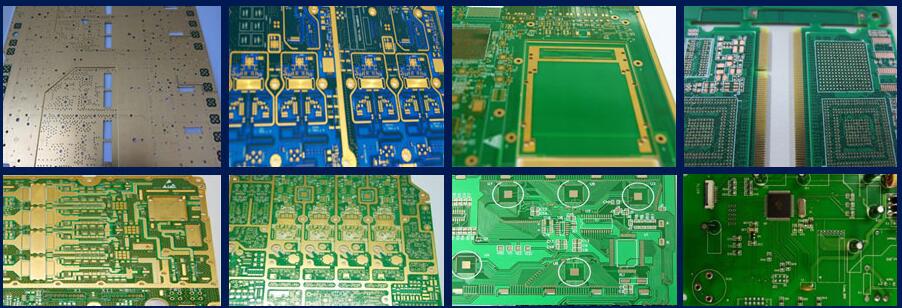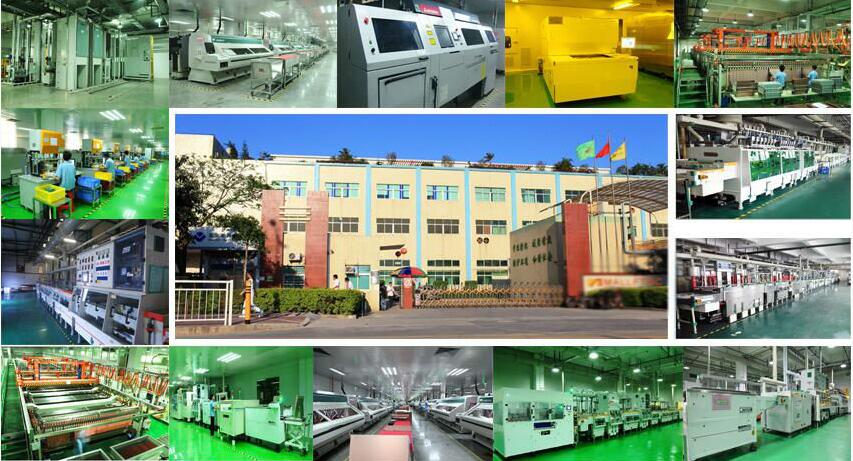Photovoltaic expansion has become increasingly fierce. Several polysilicon projects that were temporarily suspended due to “No.38 Document†are expected to receive a “batch†within the year.
“If there is no new project approval this year, the supply gap for polysilicon in the country will exceed 60% in the next two years.†On April 6, an executive from a polysilicon company in the central region pointed out that companies such as Suntech, TRW, and CSI Artz The output of more than 1G watts, coupled with the entry of many new downstream photovoltaic manufacturers, in 2011 whether the domestic polysilicon self-sufficiency rate can reach 50% is still unknown.
In September 2009, the State issued “No. 38 Document†(“Some Opinions on Restraining Part of Overcapacity and Duplicate Construction and Leading the Healthy Development of Industriesâ€), and stopped the approval of polysilicon expansion projects, but the “Polysilicon Industry Access Requirements†The end of January this year released several stagnant polysilicon projects.
In mid-March, Zhu Gongshan, chairman of the board of directors of GCL-Poly, the largest polycrystalline silicon producer in China, announced that in the silicon materials business, the company will expand its production capacity based on the existing polysilicon and wafer production capacity. It is expected that the polysilicon production capacity will reach 46,000 tons by the end of 2011.
The capacity expansion plan is not only unique to GCL-Poly. LDK, MCC, and Daquan have similar arrangements.
“China Metallurgical has plans to expand polysilicon production capacity and plans to have a production capacity of 10,000 tons in 2011.†said Zhang Zhaolong, Vice President of China Metallurgical Group, China's polysilicon production is not sufficient to meet domestic demand, so there is no excess capacity, and the current state of the new energy The support is increasing.
At present, the excessive planning of local governments and the high energy consumption during the production of polysilicon have caused heated disputes over whether or not polysilicon will be released. Zhang Zhaolong believes that although the production of 1 ton of polysilicon consumes more than 10,000 kilowatts of electricity, the use of polysilicon has a relatively high energy efficiency. Therefore, "polysilicon is not a high-tech industry."
The above-mentioned central polysilicon executives believe that there is indeed a problem of high energy consumption and no closed-cycle equipment in the small polysilicon plants with a domestic scale of less than 3,000 tons, but the “Polysilicon Industry Access Requirements†has made explicit provisions on this, plus WACKER, Deshan, OCI and other international big companies are all expanding their production. "The domestic cost is higher than the international big factory by about 20 US dollars/ton. If there is no expansion, there is no any competitiveness at all."
The aforesaid central polysilicon company stated that there should be several polysilicon projects approved by the National Development and Reform Commission this year. In addition to the requirements for approval of polysilicon industry access requirements, approved projects should be selected among companies with better qualifications, and the possibility of new construction and expansion at the same time is extremely high.
“If there is no new project approval this year, the supply gap for polysilicon in the country will exceed 60% in the next two years.†On April 6, an executive from a polysilicon company in the central region pointed out that companies such as Suntech, TRW, and CSI Artz The output of more than 1G watts, coupled with the entry of many new downstream photovoltaic manufacturers, in 2011 whether the domestic polysilicon self-sufficiency rate can reach 50% is still unknown.
In September 2009, the State issued “No. 38 Document†(“Some Opinions on Restraining Part of Overcapacity and Duplicate Construction and Leading the Healthy Development of Industriesâ€), and stopped the approval of polysilicon expansion projects, but the “Polysilicon Industry Access Requirements†The end of January this year released several stagnant polysilicon projects.
In mid-March, Zhu Gongshan, chairman of the board of directors of GCL-Poly, the largest polycrystalline silicon producer in China, announced that in the silicon materials business, the company will expand its production capacity based on the existing polysilicon and wafer production capacity. It is expected that the polysilicon production capacity will reach 46,000 tons by the end of 2011.
The capacity expansion plan is not only unique to GCL-Poly. LDK, MCC, and Daquan have similar arrangements.
“China Metallurgical has plans to expand polysilicon production capacity and plans to have a production capacity of 10,000 tons in 2011.†said Zhang Zhaolong, Vice President of China Metallurgical Group, China's polysilicon production is not sufficient to meet domestic demand, so there is no excess capacity, and the current state of the new energy The support is increasing.
At present, the excessive planning of local governments and the high energy consumption during the production of polysilicon have caused heated disputes over whether or not polysilicon will be released. Zhang Zhaolong believes that although the production of 1 ton of polysilicon consumes more than 10,000 kilowatts of electricity, the use of polysilicon has a relatively high energy efficiency. Therefore, "polysilicon is not a high-tech industry."
The above-mentioned central polysilicon executives believe that there is indeed a problem of high energy consumption and no closed-cycle equipment in the small polysilicon plants with a domestic scale of less than 3,000 tons, but the “Polysilicon Industry Access Requirements†has made explicit provisions on this, plus WACKER, Deshan, OCI and other international big companies are all expanding their production. "The domestic cost is higher than the international big factory by about 20 US dollars/ton. If there is no expansion, there is no any competitiveness at all."
The aforesaid central polysilicon company stated that there should be several polysilicon projects approved by the National Development and Reform Commission this year. In addition to the requirements for approval of polysilicon industry access requirements, approved projects should be selected among companies with better qualifications, and the possibility of new construction and expansion at the same time is extremely high.
Printed Circuit Boards Pcb Manufacturing & Fabrication
Topscom is one of the world's leading suppliers of printed circuit boards,Advanced Technology Products:
Backplanes, HDI boards, High-frequency boards,High TG boards, Halogen-free boards, Flexible and Rigid-Flex boards, Hybrids, and any boards with applications in high-tech products.

Over 15 Years of Experience in PCBs Manufacturing, 350,000ft2 monthly | Our products are UL- and RoHS-marked | 2-70 Layer Capablity
Topscom has 15 years of experience in researching and manufacturing PCBs. We provide an extensive range of high-tech prototypes, including HDI boards (5+N+5, stack via and resin plug, laser drill in-house), multilayer boards (up to 70 layers) and rigid-flex boards.
We also use special materials, mostly from Rogers, Teflon, Nelco, Getek, BT and Arlon.Monthly Turnout Reaching 350,000 Square Feet,With a 12,000-square-meter factory, more than 500 skilled employees and advanced equipment, we are able to produce 350,000 square feet of PCBs monthly. Our facilities house a Hitachi CO2 laser drill machine, X-ray target hole drill machine, AOI machine, Tektronix impedance measurement machines, XY-Dimension micro-test machines and ionic contamination testers. These allow us to complete a 70-layer prototype in as fast as two weeks.Meeting ISO, UL and RoHS Standards,Our QC procedures are in line with ISO/TS 16949, ISO 13485, ISO/TS 14067 and ISO 14001 standards. This ensures that our products carry UL and RoHS marks. Our R&D center consists of experienced engineers who are committed to high-tech PCB innovation.
From the in house qualification of advanced laminate materials, signal integrity analysis, DFx, Topscom is the leading manufacturer of advanced printed circuit boards. For both high speed and high reliability PCB fabrication, Topscoma will work with global based customer to develop advanced PCBs with unique requirements.
• PCB Layout, CAD, Design for Manufacturability and Cost (DFx)
• Quick-turn PCB Prototyping for High Technology PCBs, Backplanes and Flex Circuits
• High-volume,capability over 70 layers
• Advanced Technology: Latest Laminates, HDI, any Layer Via Structures, Multiple Sequential Laminations
Topscom PCB Factory And Equipment Review:

Complete High Speed PCB & Backplane Solutions:
Topscom provides a fully integrated high speed capability, with in house design, simulation, signal integrity, EMC/RFI analysis, prototyping and production of custom backplanes, high speed PCBs, cables and enclosures.
Mission Critical PCB Solutions
Topscom designs and produces high reliability PCBs and flex circuits for defense and aerospace, medical and robust environments. Certifications include: MIL-PRF55110 & 31032, ITAR, AS-9100, TL 9000, Telecordia GR-78-CORE.
High Speed PCBs:
• Multiple sequential laminations
• HDI, any layer structures
• Over 70 layers
• Thermal coining
• Laser milling
• Blind and backdrilled thru holes
High Speed Backplanes:
• Panel sizes to 54 inches
• Over 70 layers
• Blind and backdrilled thru holes
• Dual diameter holes
• Heavy copper layers
• Connector expertise
Topscom Pcb Circuit Boards Plants Basic Info:
• Multoc Circuit Co.,Ltd. Established in year 2001 And 100% Subsidiary Company is Invested By Topscom
• Factory Location: Multoc Building Park,Futian Industrial Zone, Dingnan City, Jiangxi Province,China.
• Initial Capital of $9,000,000
• Accredited ISO9001 ISO13485 ISO 16949 ISO14000
• Factory production area of over 12000m2
• Over 500 employees
• Sales Revenues: 80 Million USD with 2016 year
• Pcb Circuit Boards Manufacturing,serviced for manufacturing a wide range of products including: Automotive, industrial, medical, consumer, telecom, and Aerospace Devices
• Pcb include: Multilayer Rigid Pcb, Hdi Pcb, Over 70 Layer, And Flexible Circuits Pcb, Rigid-Flexible Circuits Pcb.
• Products are 100% exported from China, primarily to Europe and North America.
Pcb Circuit Boards Manufacturing
Pcb Circuit Boards,Multilayer Rigid Pcb,High Frequency Pcb,Aluminum Pcb
Topscom Technology Co., Ltd. , http://www.pcbassemblycn.com